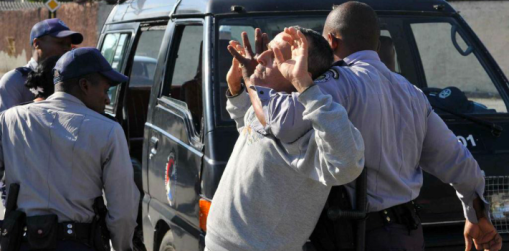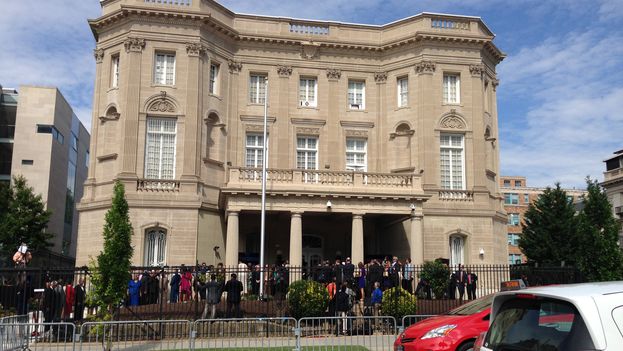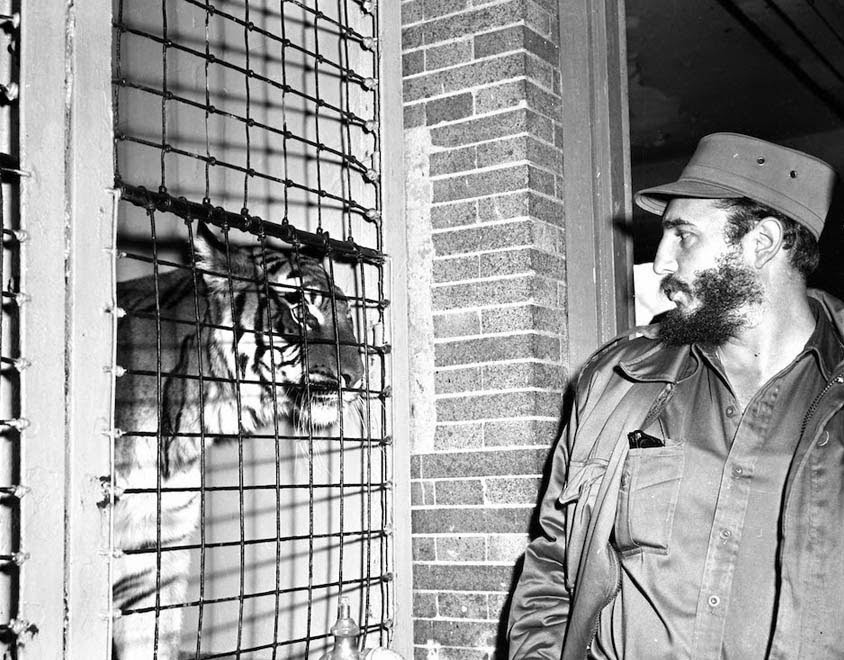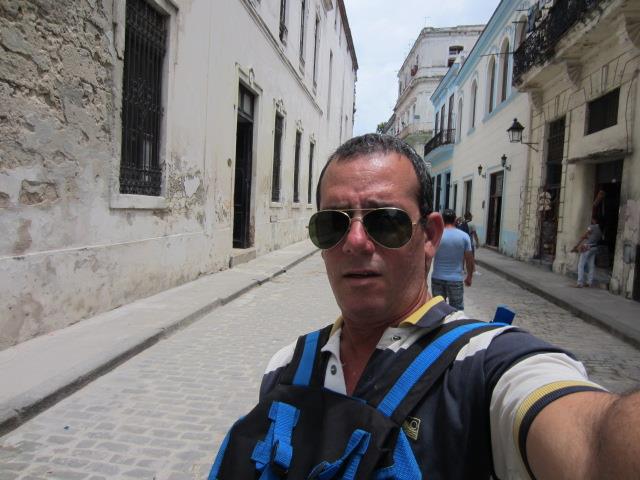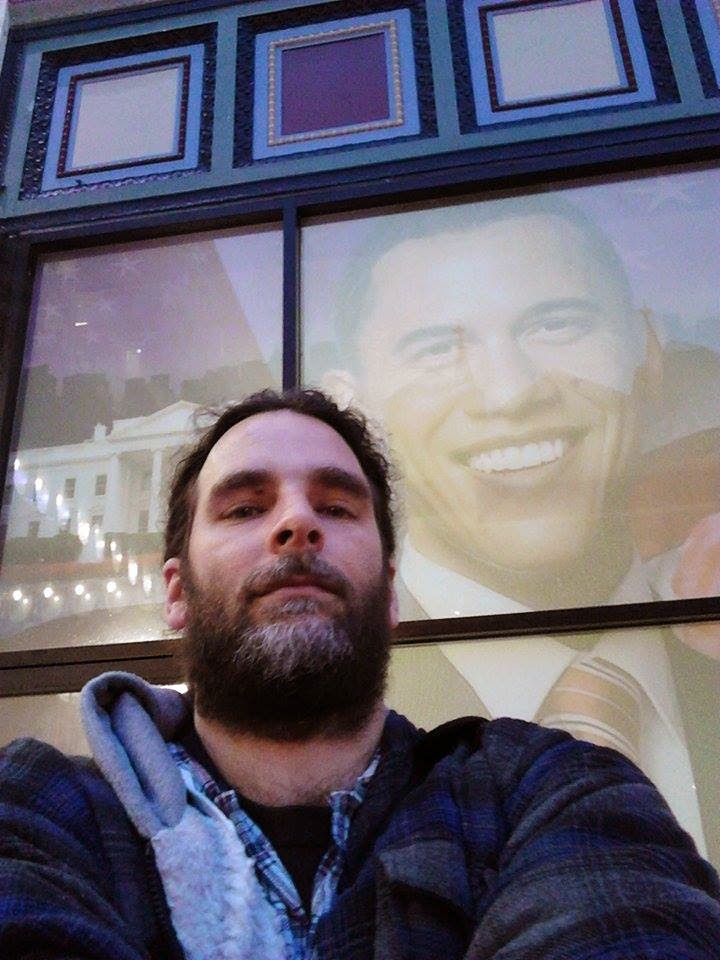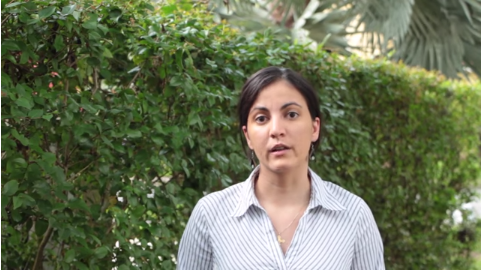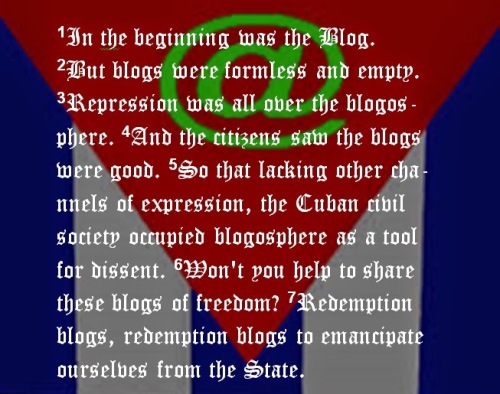As early as in the summer of 2005, I opened a blog for publishing a literary and opinion magazine that three Cuban writers decide to edit in Havana: Cacharro(s) —in English, Junk(s).
Lizabel Monica, Jorge Alberto Aguiar and I were posting our texts in cyberspace, hoping for a reader abroad to save us from the silence within. We couldn’t imagine that in a couple of years our initial experiment was to be ignored in the history of Cuban blogosphere, when our efforts to escape not only censorship, but also the mass media mediocrity of the Revolution, were displaced by new voices with high public impact both from the cultural and political fields.
This was the genesis of an independent movement of citizen journalism which challenged the lack of transparency of the public sphere in Cuba, a country still without private Internet today.
Cuban top-level intelligence commanders like Ramiro Valdes have stated that the Internet is a “wild horse” that “must be tamed” before offering it to the people. After many promises and postpositions, including a submarine fiber-optic cable that connects us with Venezuela since 2011, Cubans are still waiting for a miracle.cu, although continue reading
the vice-president Miguel Diaz Canel has warned our press not to be objective but “loyal to Fidel, Raul, and the Revolution”, while Fidel himself determined that the “internet is a revolutionary tool”.
Elaine Diaz, blogger of La Polemica Digital —The Digital Polemics— known as critical of certain official measures, but at the same time a professor of journalism at Havana University and now a Nieman Fellow at Harvard University, in her degree thesis about the Cuban blogosphere “scientifically” established in terms of topics and chronology that none of the renowned dissident bloggers were pioneers at all, thus diluting this phenomenon in an ocean of other blogs practically discovered by her, up to nearly 3,000 today, which outnumbers by far the dozens of local independent bloggers.
Diaz quotes only those blogs that can be quoted in Cuba without risking her research position, like Patria y Humanidad —Homeland and Mankind— since 2006 administered by Luis Sexto, a winner of the National Journalism Prize; and La Isla y la Espina —The Island and the Thorn— since 2007 administered by Reinaldo Cedeño, both defined as open to “foreign authors” and to “hot heated debates” but, of course, within the temperature limits of political discipline on the Island.
Diaz recognizes that the Union of Cuban Journalists (UPEC) and no less than the Ideological Department of the Central Committee of the Cuban Communist Party, authorized more than 1,000 official journalists to open blogs from their workplaces or privileged home connections, in order to —as Milena Recio wrote in her article “Cuban blogs: an entrenched identity”— reproduce in cyberspace the same battlefield logic of the street propaganda, to “counteract the distorted and opposite speeches from hegemonic mass media” against the Revolution.
The very Code of Ethics of UPEC rejects “hyper-criticism” in its article 7, while in articles 8 and 9 reminds their members to “maintain a social and moral behavior in accordance with the principles and norms of our society […] to promote the best of our national values and the constant improvement of our socialist society”. And after paternalism comes a large list of punishments, which includes imprisonment, as happened to a journalist from the Communist Party newspaper Granma, Jose Antonio Torres, accused of espionage after one of his official reports.
Diaz also proposes the “emancipatory and anti-capitalist usefulness of the new media and technology” in Cuba, and the need of “virtual symbols” for a country where it is “possible” the “horizontal dialogue”, beyond power hierarchies and all kinds of social exclusion: by race, by gender, by sexual preference, by economic status, etc. Although she omits to mention the cause of all discriminations in Cuba: the political intolerance and hate speech of the revolutionary government, summarized by Fidel Castro in his speech to Cuban intellectuals in 1961: “Within the Revolution, everything; against the Revolution, nothing.”
Recently, this “dialogue” approach has been updated by the web Cuba Posible of Lenier Gonzalez and Roberto Veiga, former editors of a Catholic Church magazine that published some civil debates, where certain civil society activists managed to participate. Cuba Posible claims for the complicit concept of “loyal opposition” to the regime, if critics are to be considered legitimate. Besides, Gonzalez and Veiga urge the Cuban dissidence to commit suicide and stop all the support they receive from foreign NGOs, despite the detail that they both defended this viewpoint from Washington DC, invited in January 2015 by a compendium of US pro-Castro NGOs, like the Cuba Research Center of Philip Peters.
During the last decade, the Cuban alternative blogosphere has expanded and contracted like the cycles of a claustrophobic universe. Its main communication strategies and activists have renovated only to remain identical.
With my blog of fictionalized chronicles Lunes de Post-Revolution —Post Revolution Mondays— and my photoblog Boring Home Utopics, I have witnessed most of this Cuban digital e-volution, with its pro-human rights achievements and, unfortunately, with today´s drawbacks in front of a State involved in a self-transition to capitalism without capitalists, but with accomplices of Castros’ agenda.
Most of free-lance Cubans’ blogs are linked in the websites HavanaTimes.org and VocesCubanas.com, where can be found the famous Generation Y of Yoani Sanchez, blogs from visual artists like the graffiti performer Danilo Maldonado El Sexto (in jail since last December) and the photographer Claudio Fuentes, blogs dedicated to new media and technologies like the one by Walfrido Lopez, blogs from independent lawyers to give legal advice like the unregistered Cuban Juridical Association of Wilfredo Vallin, blogs from religious leaders like the Baptist minister Mario Felix Lleonart, blogs of digital publications like Plural Thinking Notebooks, Notebooks for the Transition, and the magazine Voices edited by me, community participation initiatives like Pais de Pixeles photo-contest, blogs of filmed debate projects which then are uploaded to the web to impact on public opinion, like Razones Ciudadanas/Citizens’ Quests.
Thanks to the volunteer amateur projects TranslatingCuba.com and HemosOido.com many of these blogs are distributed beyond geographical isolation and the barriers of language.
Mainly in Havana, much closer to the www than Cuban pre-technological countryside, events have been held to shift from the cyberspace to citizen mobilization, like the Blogger Academy where we teach the technical rudiments of self-publication, as well as the primitive option of tweeting by an international SMS sent from the Island, as local mobiles have no internet service in Cuba. Other events also held in private houses, like the two annual editions of Click Festival 2012 and 2013, had the privilege to count on international experts on blogs, and consequently they were stigmatized by the governmental blogosphere as being part of a subversive conspiracy to disrupt social stability.
Indeed, cyber-bullying is the less brutal answer of Castro’s political police to Cubans exercising our right to freedom of expression.
Two inflexion points in this abusive battle of the government against their own citizenry, occurred in 2011. First, the Cuban TV showed a weekly series on Cyber-mercenaries where all independent activists were severely threatened to be prosecuted (coincidentally, Elaine Diaz was used an example of blogging correctly). Then a suspicious video leak occurred from State Security, where an officer later identified by the social media as Eduardo “Tato” Fontes Suarez, delivers a conference for the Ministry of the Interior to teach them how to manipulate the internet in the era of an American president “much worse the Bush”, implementing a clone blogosphere to reproduce Cuban official press and saturate the web with convenient contents. This includes the logic of creating authorized local versions of Wikipedia (like Ecured), Facebook (like La Tendedera), Twitter (like El Pitazo), etc.
This should remind us of the theories of Evgeny Morozov on how disappointing is the excess of web optimism, because repressors also learn how to take advantage of the interconnected world to channelize and control social discontent to their own convenience.
Unfortunately, after the 2013 migratory reform that for the first time in decades allowed Cubans to travel abroad without the humiliating “exit permit” or “definitive departure”, international recognition of Cuban civil society leadership has meant a national weakening of our networks and the dispersion of our already limited impact on the Island.
All the peaceful movements and prominent personalities of Cuban civil society, that in the good old days of 2008-2011 seemed about to integrate in a unified opposition front with political implications, are now splintered in their respective personal initiatives among themselves. The more successful their international projections, the more isolated among themselves are their national projects. We Cubans are still lacking a culture of open polemics and understanding of differences. After more than half a century, Castroism has castrified even their opponents.
Here are some sad examples, as they all are my dear friends and have been fighting quite a long time for a better future in Cuba:
The Ladies in White split one more time, in a fractal procedure that keeps the movement stagnated in number of members, and with an exponential increase of refugees fleeing to the US. Once in exile, most Cuban dissidents quit social activism or, in the best cases, end up as secretaries in Cuban American NGOs. The legacy of their founding leader Laura Pollán is at risk for the benefit of the Ministry of the Interior, now that their new leader Berta Soler carried out a shameful repudiation against one of its former members, and then had to hold a referendum to ratify her life-long leadership. But Soler was expelled anyway by the daughter of Laura Pollán from her home headquarters in Neptuno Street in Central Havana, where Laura Pollán junior expects to direct a new foundation that will monopolize exclusive use of her mother’s name.
The Christian Liberation Movement (MCL) is headless after the 2012 extrajudicial killing in Cuba of their leaders Oswaldo Payá and Harold Cepero. Internal rearrangements have displaced from any position even the daughter and the widow of Oswaldo Payá, in a dispute for the redemptive legacy of the martyr, as well as the strategies that should be implemented by this now virtually an exiled movement.
The Cuban Patriotic Union (UNPACU) always has nearly half of their activists in jail. On one hand, UNPACU fostered the creation of an independent branch that broke out of the Ladies in White, the Lady Citizens for Democracy. On the other hand, they are obsessed with detecting and denouncing —and sometimes converting to the cause of freedom— Castro’s secret agents, like the infamous case of Ernesto Vera, but they lack a citizen mobilization strategy beyond their self-extinguishable street protests, partly because the Cuban people are unfortunately unmovable.
The Somos Mas movement launched by Eliécer Avila relies only on his face and voice as a charismatic character, once himself a digital soldier that conducted the Operation Truth at the University of Information Sciences (UCI), a platoon of trolls devoted to defaming activists worldwide, distorting online forums and surveys dealing with Cuba, and hacking websites that expose the violations and fallacies of continental Castroism.
The bitter debate of mutual distrust and discredit between those close to blogger Yoani Sanchez and her brand-new 14yMedio.com digital outlet —prone to take advantage of the US-Cuba new engagement to push the limits of censorship in Cuba—, and other previous digital citizen journalists, like the staff of Primavera Digital (who in turn last year publicly despised their Swedish funding partners), and also with the well-known Antonio Rodiles from the very active audiovisual discussion project Estado de Sats, who practically accused 14yMedio and colleagues of collaborating with the regime’s surviving agenda of allowing foreign investments with no guarantee for human rights, in a Putin-like or Chinese or Vietnamese or Burma post-totalitarian model.
On the official part, in the monolithic digital headquarter of Cubadebate, general Raul Castro with his speech at the ALBA Summit in Caracas this month, and many other op-eds published in tandem, has warned that the “international ultraconservative right” is again deploying its “mass media weapons” to use the “concept of civil society in order to attack all the progressive governments from the hemispheric left, with the purpose to deceive and manipulate all the peoples of the world.”
Cubadebate has even announced the popular repudiation that Cuban dissidents —namely, “mercenaries”— will receive in the Summit of the Americas in Panama next week, because we all are “conceived, paid and directed as drones from the US and the EU, through NGOs supposedly for the promotion of human rights, but in fact having met with confessed terrorists like Luis Posada Carriles in Miami, and besides being directly financed by secret institutions of the American imperialism, including the Pentagon and the CIA”.
In March 2015 the Castro regime still proudly calls Cuban social activist leaders “Washington’s puppets, in the line of the dictators Fulgencio Batista in Cuba, Carlos Andrés Pérez in Venezuela, and Augusto Pinochet in Chile, whose mission if ever we attain power is to surrender the wealth of our nation to the US monopolies”, and a white elite that cares not about the “black, aboriginal, farmer and workers minorities”.
Although, paradoxically, it was Fidel Castro who dollarized the Cuban economy for over 20 years now, while his brother Raul Castro is demanding financial credit from American banks and corporations. Furthermore, Afro Cubans suffer much more than other dissidents in Cuba in the hands of the mostly white State Security top-officers, who assume that blacks owe more gratitude to them the rest of the Cuban people.
These are only some tragic examples:
The death of the Afro Cuban opposition activist Orlando Zapata Tamayo in a jail, after a long hunger strike in 2010 to stop torture against him. The 33 months that the Afro Cuban member of the Ladies in White Sonia Garro and her husband spent in prison without charges and with no trial. The harassment and beatings against of Afro Cuban leader Jorge Luis Garcia (Antunez), usually prevented from stepping out of his own house in Placetas town. The arbitrary political police arrests, plus the temporary or permanent invalidation of the passports of Cuban Afro Cuban intellectuals and activists Manuel Cuesta Morúa and Ivan Hernandez Carrillo. The fascist-like mobs conducted by the government against the residences of Berta Soler and other Afro Cuban peaceful women of the Ladies in White, including throwing tar —yes, tar— with impunity against their bodies, like recently happened to Digna Rodríguez Ibañez. Or staining them by force with red paint to resemble human blood, like they did to Mercedes La Guardia Hernandez.
The White House and the remains of the US economic embargo should not ignore that a market economy is not a tropical liberation formula, since it has already been implemented by authoritarian systems as a tool for despotic control. The secret negotiations to appease our tired tyranny should remember that what has been good for free Americans since the Eighteenth Century is also good for Cubans citizens today.
The rationale that, after waiting for so long, Cuban democracy can wait a little longer is a discriminatory concept implicitly legitimized by the US press and academics in their search of a lost Latin American Left.
Maybe the hope of the White House is that the New Man will stop being a soldier and become the New Salesman, but bringing down the wall should mean more than opening up the wallet. In the urgency of Google, Amazon, Delta, Netflix, Coca-Cola, and even Bacardi to re-conquer their Pearl of the Antilles, they shouldn’t forget that we “Cubans have the right to have rights,” as preached by Oswaldo Payá before the gerontocracy and their international accomplices took his life.
In any case, according to the migratory statistics, Cubans are certainly making a lot of space for the Yankees to come home to our Island, as we keep escaping by legal or lethal means, in a kind of pedestrians’ plebiscite, voting with our fleeing feet instead of with electoral ballots.
For the funerals of Fidel, the commander-in-chief will have achieved all the glories of history —which is the mother of all horrors— but also the frantic farewell of his own people —almost one-fourth of our population. This migratory crisis is what the US is really trying to stop by stabilizing the Communist dynastic succession to the Castros 2.0 generation: namely, Alejandro and Mariela Castro Espin, among other relatives, whether dandies or despots, many of them holding high level positions in the Cuban establishment while receiving privileged visitor status in the US.
The hope would be in convoking a national referendum with international observers so that the Cuban people can freely and safely express our will for the first time since 1948. Otherwise, Cuba will become a Castro-centralized capitalist condominium, economically annexed to the US but with a hyper-nationalist speech to justify impunity on the Island.
Now President Barack Obama can choose to extend his helping hand to the oldest Latin American dictatorship. Or he can consider if the Cuban people deserves to endure our apartheid until the last of the Castros manages to remain in power without consulting anyone (except maybe Obama himself).
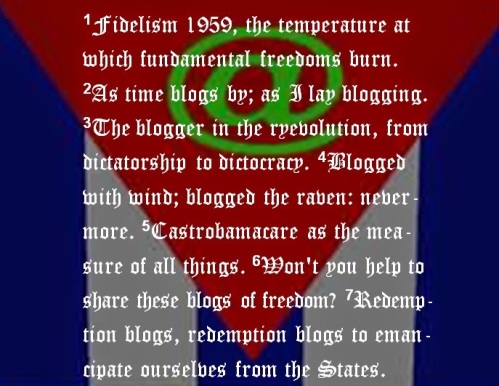
1 Fidelism 1959, the temperature at which fundamental freedoms burn. 2 As time blogs by. 3 As I lay blogging. 4 The blogger in the ryevolution. 5 From dictatorship to dictocracy. 5 Blogged the Raven: nevermore. 6 Castrobamacare as the measure of all things. 7Won’t you help to share these blogs of freedom? 8 Redemption blogs, redemption blogs to emancipate ourselves from the States.
29 March 2015
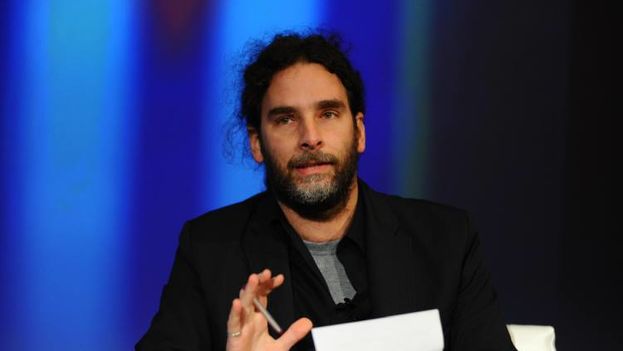
![]() 14ymedio, Luz Escobar, Mexico, 24 September 2015 — The writer and photographer Orlando Luis Pardo Lazo has received refuge in the capital city of Reykjavik, Iceland, through the Network of International Cities of Refuge (ICORN), he himself confirmed to 14ymedio. The Cuban artist also received guarantees of housing and the freedom to create.
14ymedio, Luz Escobar, Mexico, 24 September 2015 — The writer and photographer Orlando Luis Pardo Lazo has received refuge in the capital city of Reykjavik, Iceland, through the Network of International Cities of Refuge (ICORN), he himself confirmed to 14ymedio. The Cuban artist also received guarantees of housing and the freedom to create.
